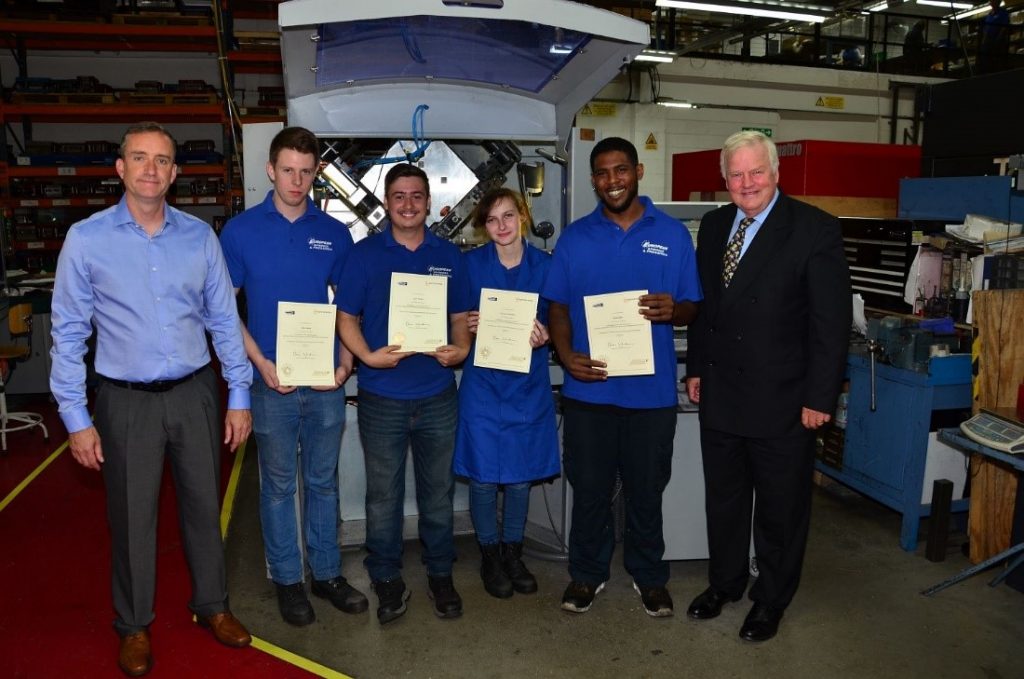GCSE Results – What Comes Next? Choosing STEM
Whatever the results are, emotions are sure to be running high. Whether you’re reading this for yourself, your friend, a sibling or a child, we’re here to help you understand why choosing a STEM subject to take to college could change lives for the better. In this article, we take a look at what you should expect during results day and what you should be thinking about next.
Keeping Calm on GCSE Results Day
For all young adults and teenagers out there about to receive their GCSEs, we know that keeping calm is the last thing on your mind. You’re busy thinking about all the hard work you have put into your education over the past few years, and, most importantly, whether it has been enough.
We recognise the sacrifices you’ve made, giving up your free time, again and again, to thoroughly complete your homework, working hard to make sure you really understand the concepts that you’ll need to take with you into the exam, we understand that these aren’t just certificates and awards to you.
However, once you have taken your exams, there is little that can be done to change the outcome. What is important for you now is to keep researching what routes are open to you based on your passions and skills.
The chances are that you can guess what grades you should be expecting based on your performance in mock papers, but if you’re even slightly worried, it can help to explore your options. It’s important to remember that you aren’t going to be boxed in by your results; there are multiple routes to achieving the career of your dreams, and not everyone needs to go to university.
At GCSE, however, you might still be trying to figure what ‘the career of your dreams’ really means to you. If there are lots of subjects that you enjoy, for example, trying to reduce those subjects to three or four that you’ll take with you to A-Levels can feel like an impossible task. Whether you should prioritise your grades in a subject over your enjoyment of it isn’t a question that we can answer for you, but we can tell you about all the reasons why you should consider pursuing a STEM career.
What is STEM?
The acronym ‘STEM’ stands for Science, Technology, Engineering and Mathematics. These academic disciplines are grouped because they share similar ways of working and learning, often heavily relying on mathematical formulae and sharing some theories and knowledge between the subjects within them.
The UK is currently suffering from a shortage of skilled workers in STEM careers; this means that you could be looking at earning a lot of money if you were to pursue an education in STEM. We rely on STEM learners to construct buildings, solve diseases and innovate technology; those working in STEM elevate humanity through their creations and hard work.
If you want to pursue STEM, you need to have an aptitude or a passion for basic maths and science, preferably both. If you’re pursuing STEM because you want to earn a high wage, then (like any career) you will have to learn to achieve focus and to work hard.
My Future with STEM
When you study maths and science, there are plenty of opportunities available to you. Your future with STEM doesn’t necessarily require you to have high grades, though your grades may determine which area of STEM you start with.
If you are a high-achieving student, then you are unlikely to have jobs and apprenticeships on your mind at first. Many high-achieving students in the UK go to university, and while this is the right decision for many students looking to improve their knowledge and connections in their field, you may be better served by taking an apprenticeship or work experience.
Unlike a degree, an apprenticeship will focus on perfecting those practical skills that working environments want to see on your future CV. Similarly, you can get paid during an apprenticeship, which makes it a more financially attractive prospect than university.
If you have average grades and good determination, then you may be considering the pros and cons of pursuing college and university versus starting your career. You may find academic learning more difficult than your peers, so a hands-on apprenticeship might be better for your progression. If you aren’t sure yet, the best course of action for you now is to receive your results, enrol in a college with your preferred STEM subjects and give it your best shot. How you feel during the end of your course should give you the information you need to know whether you’ll want to pursue academic STEM or start your work experience.
If your grades are low, but you have a strong work ethic, then you can work hard to elevate your grades during college or start considering your aptitudes for hands-on learning in work experience and apprenticeship courses. Consider taking extra-curricular activities and courses to bolster your skills set for future employers if you’re struggling with the academic rigour of school-learning.
Remember that not all pupils are well-represented by the GCSE examination system, your grades, successes or failures won’t define you as a person. What you need to do now is think carefully about the options available to you and where you would like to be in two-to-five years. We’ve had plenty of apprentices pass through our doors, trying to gain a solid understanding of what is expected from spring manufacturers in the UK.



